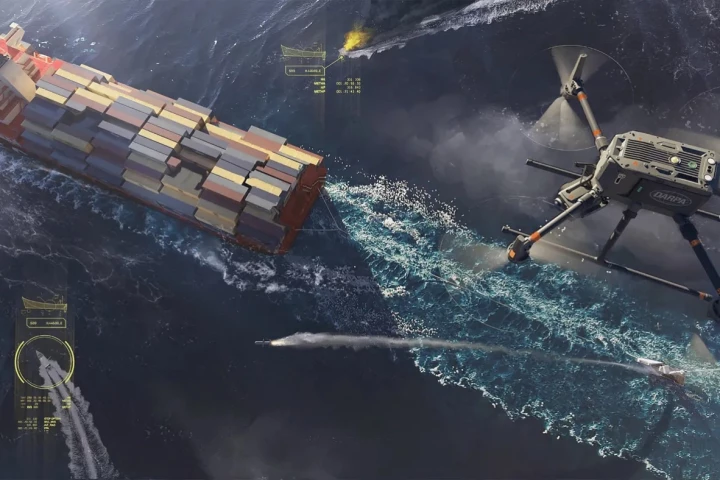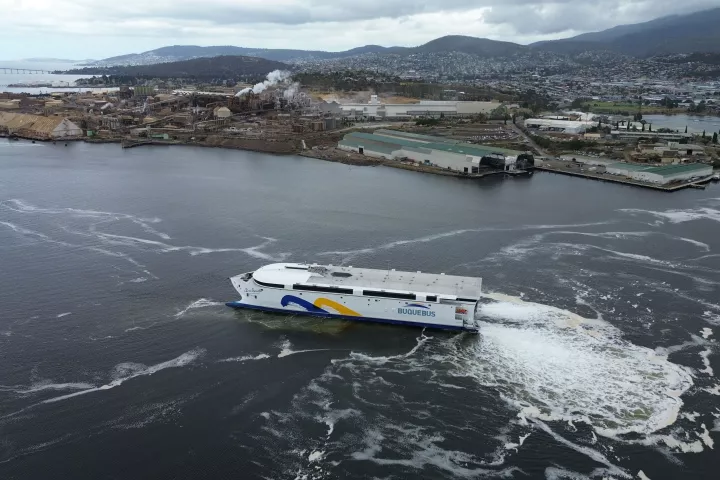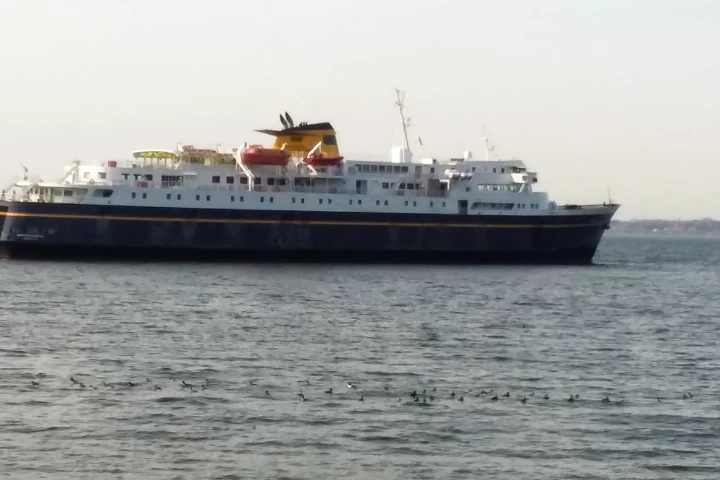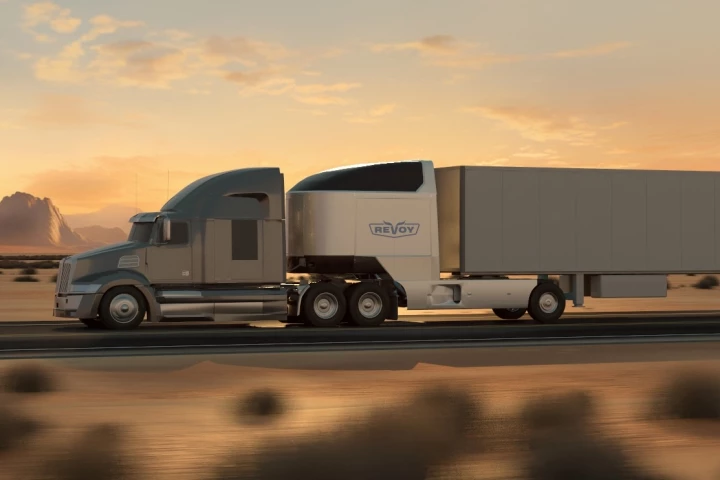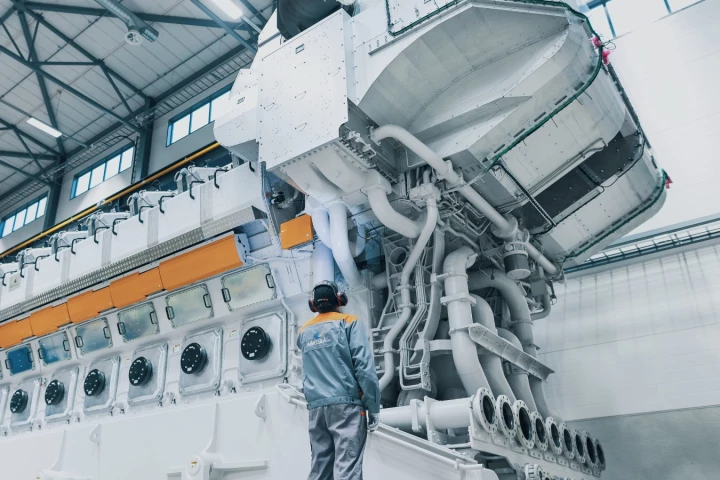Shipping
-
DARPA and Raytheon have teamed up to tackle one of the growing threats to commercial and logistical shipping: attacks by drones. The Pulling Guard project aims to develop a towed platform that trails behind ships, providing detection and countermeasure capabilities.
-
Nuclear power isn't just for naval ships anymore as demonstrated by the Nuclear Propulsion in merchant Shipping (NuProShip II) project led by the Norwegian University of Science and Technology which is looking at fitting nuclear reactors to heavy-duty commercial vessels.
-
The world’s largest battery-electric ship has quietly begun harbor trials on the River Derwent in Hobart. Built by Incat Tasmania, the Hull 096 represents a major step forward for large-scale electric shipping.
-
Sometimes safety becomes unsafe when it's carried too far. A new study by Lloyds Register reveals that ships, especially cruise ships, have so many alarms going off on the bridge that it's overwhelming crews and creating unsafe conditions.
-
Texas A&M’s Ship collision avoidance of Machine learning And Radar Technology for Stationary Entities and Avoidance (SMART-SEA) system combines AI, radar, and human expertise to help crews navigate one of the most complex safety problems at sea.
-
Transport produces 28% of the greenhouse gas released in the US, and nearly a quarter of that comes from heavy vehicles – more than from passenger cars. Revoy attacks the problem with a smart dolly that creates a hybrid semi truck with two heads.
-
Methane is awful for the atmosphere. It's a major byproduct of many industrial processes, and we now know it also comes from a surprising and seemingly innocuous source – ships passing through shallow waters.
-
Once famous for building the world's biggest and most powerful engines, Finnish company Wärtsilä is investing heavily in technology to clean up the notoriously difficult heavy marine sector. CEO Håkan Agnevall lays out a roadmap to zero carbon 2050.
-
The air at sea might be getting a bit cleaner as technology group Wärtsilä puts its Carbon Capture Solution (CCS) system on the market. The modular apparatus is claimed to capture as much as 70% of the CO2 emissions from cargo ship exhaust systems.
-
Just last month we trawled the internet for updates to our coverage of the Dynafin propulsion concept from marine giant ABB. Now the technology has been independently tested, which also gives us our first look at the actual system.
-
Swiss marine giant ABB has spent more than a decade developing a radically different Voith-Schneider take on a marine propeller. The Dynafin system promises up to 85% efficiency, while giving a vessel super-precise maneuvering capabilities.
-
HyperloopTT is looking to completely redesign the way cargo transport is carried out in Brazil, with an ambitious HyperPort project that carries 40-ft (12.2-m) shipping containers in a partial vacuum tube at speeds rivaling that of flight.
Load More
